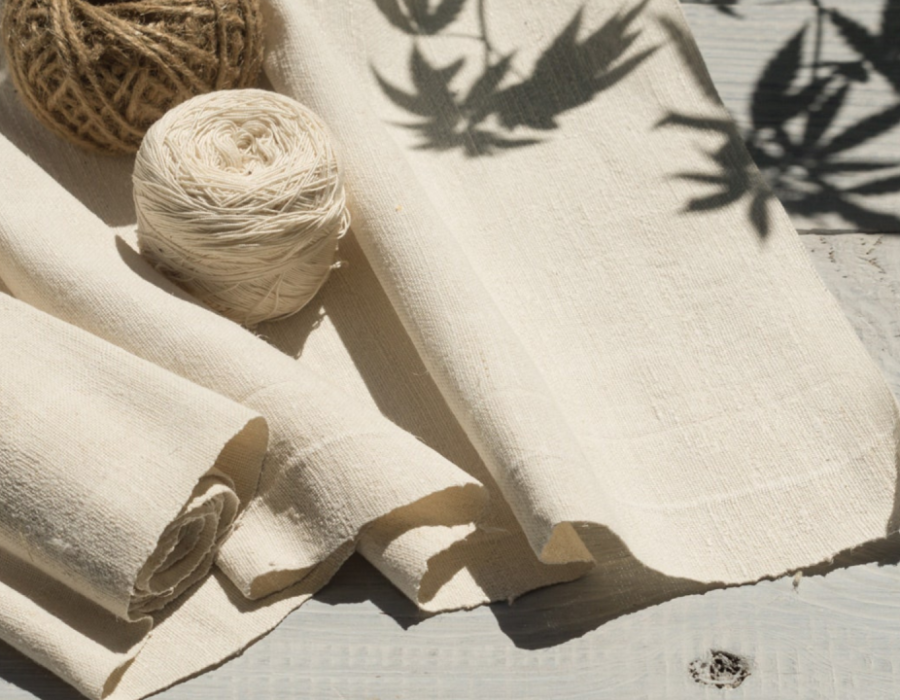In recent years, bamboo fabric clothing has gained significant attention as a sustainable and eco-friendly alternative to traditional textiles. As consumers become more environmentally conscious, bamboo fabric is emerging as a popular choice for both fashion and comfort. Made from the pulp of the bamboo plant, this textile offers a range of benefits, from its soft feel to its minimal environmental impact. Whether you are looking for everyday wear or high-end fashion, bamboo fabric is increasingly being incorporated into modern wardrobes, providing a stylish, sustainable option for conscious consumers.
What is Bamboo Fabric?
Bamboo fabric is derived from the pulp of the bamboo plant, one of the fastest-growing plants on earth. The process of making bamboo fabric involves converting the plant’s cellulose into fibers, which can then be spun into yarn and woven into textiles. While bamboo can be processed in different ways, the most common method is the viscose (or rayon) process, where the bamboo is broken down into a soft, silky material. More recently, a more eco-friendly process called “lyocell” has been used, which is less toxic and uses a closed-loop system to minimize waste and chemicals.
Bamboo fabric is known for its soft, silky texture, which is often compared to materials like cotton or silk. Its natural properties—such as being moisture-wicking, breathable, and hypoallergenic—make it an ideal material for a wide range of clothing items, including T-shirts, underwear, socks, dresses, and activewear.
Why Choose Bamboo Fabric Clothing?
There are numerous reasons why bamboo fabric clothing is a desirable choice, especially for those who prioritize sustainability and comfort.
1. Sustainability
Bamboo is one of the most sustainable crops available. It grows quickly without the need for pesticides or synthetic fertilizers and requires very little water compared to other natural fibers like cotton. Unlike cotton, which can deplete the soil of nutrients, bamboo is a highly regenerative plant that can thrive without heavy irrigation, making it an environmentally friendly crop. Additionally, bamboo requires no irrigation or fertilizers to grow, making it much less resource-intensive.
The fabric itself is biodegradable, meaning it will decompose naturally without releasing harmful chemicals into the environment. This is in contrast to synthetic fibers like polyester, which can take hundreds of years to break down and contribute significantly to landfill waste.
2. Softness and Comfort
Bamboo fabric is known for its luxurious softness and smooth texture, which is a major draw for consumers seeking comfortable, high-quality clothing. The fibers in bamboo fabric are naturally rounded, meaning they do not have rough edges that can irritate the skin. As a result, bamboo fabric clothing is incredibly soft to the touch, making it a popular choice for sleepwear, undergarments, and loungewear.
Additionally, bamboo fabric has excellent moisture-wicking properties, which help keep the body dry and comfortable, particularly during physical activity. Its breathability and temperature-regulating qualities make it a great fabric for both warm and cool climates, offering year-round comfort.
3. Hypoallergenic and Antibacterial Properties
Bamboo fabric is naturally hypoallergenic, making it a safe option for people with sensitive skin or allergies. This makes it an ideal choice for individuals who experience irritation or discomfort from synthetic fabrics. Additionally, bamboo has natural antibacterial properties that help reduce the growth of bacteria and odors, making bamboo fabric clothing more hygienic and fresher for longer.
Bamboo clothing also has the ability to resist mildew and mold, which further contributes to its durability and freshness.
4. Durability and Longevity
Bamboo fabric is surprisingly durable and long-lasting, even though it has a soft and luxurious texture. When properly cared for, bamboo clothing can last for years without losing its shape or softness. Bamboo fibers are strong, which means they can withstand wear and tear better than some other natural fabrics like cotton.
Over time, bamboo fabric becomes even softer with each wash, adding to its comfort and appeal.
Bamboo Fabric Clothing for a Sustainable Wardrobe
As the demand for sustainable fashion grows, bamboo fabric clothing is gaining popularity in eco-friendly and ethical fashion circles. Fashion brands are increasingly incorporating bamboo fabric into their collections due to its sustainability, comfort, and versatility. Whether you’re looking for a casual outfit or something more formal, bamboo fabric offers a chic, eco-conscious option that doesn’t compromise on style.
From bamboo T-shirts, tank tops, and blouses to bamboo leggings, dresses, and even outerwear, bamboo fabric can be used to create a wide range of stylish pieces for any occasion. Additionally, with its natural sheen and drape, bamboo fabric lends itself well to both everyday clothing and high-fashion designs.
Conclusion
Bamboo fabric clothing is not only a sustainable choice for eco-conscious consumers but also a practical, comfortable, and stylish addition to any wardrobe. As demand for environmentally responsible products continues to rise, bamboo fabric offers a promising solution to the growing need for sustainable fashion. Its eco-friendly properties, combined with its soft feel, durability, and natural antibacterial qualities, make bamboo fabric clothing an ideal option for those looking to make more conscious choices without sacrificing quality or comfort. Whether you’re looking to refresh your wardrobe with sustainable basics or invest in a timeless, eco-friendly piece, bamboo fabric offers a stylish solution for the modern, responsible consumer.





Comments